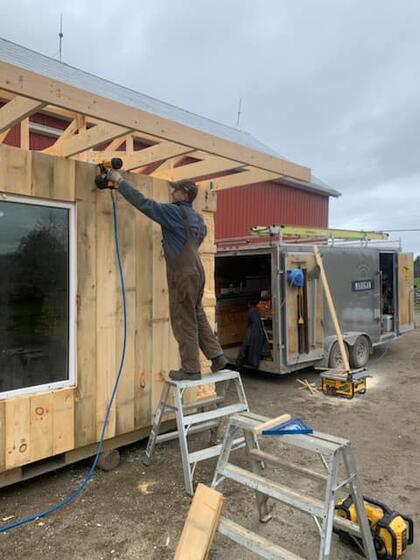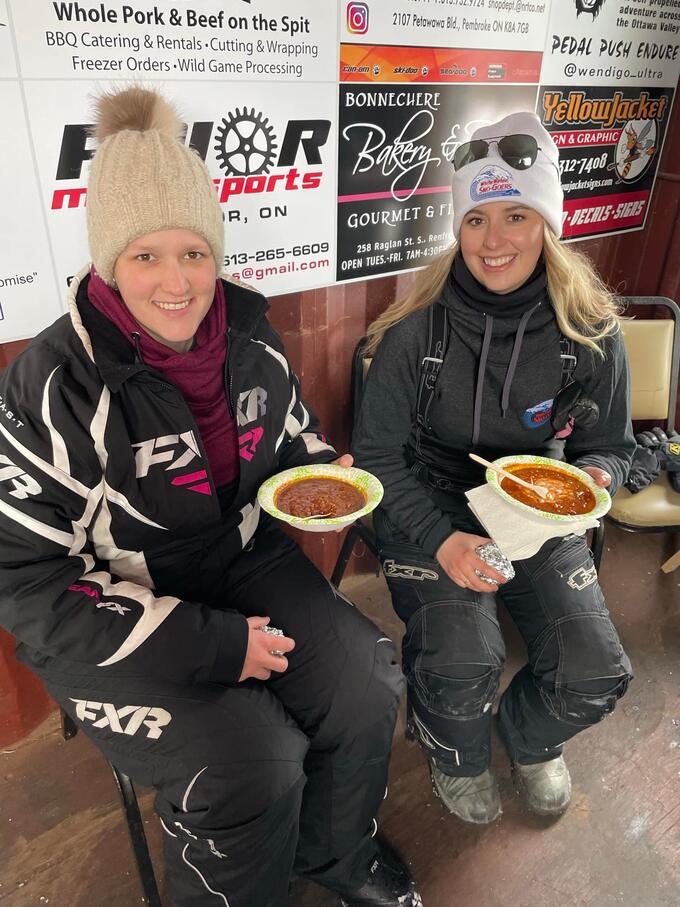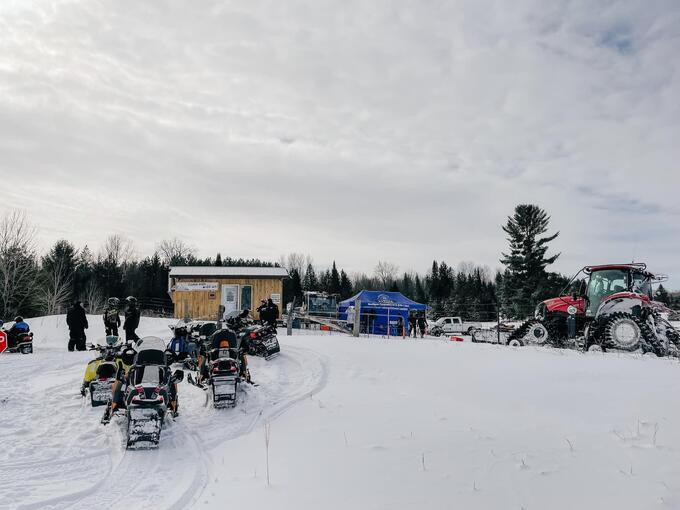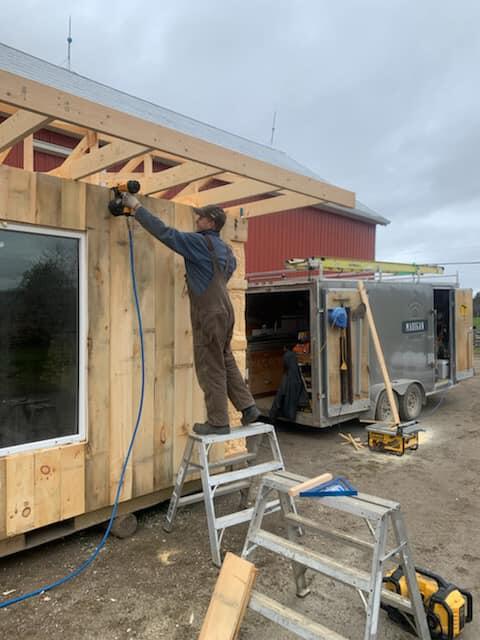Ontario Highlands is a haven for snowmobilers, who spend the winter months zipping through picturesque trails that run through rugged Canadian Shield terrain and gentle valleys. Those who travel the Algonquin Trail, a line that begins near Smiths Falls and ventures north of Petawawa, may now notice a small shack along their route.
The shack is there for them to stop in, take a break and warm up. It was funded, in part, thanks to the Regional Tourism Relief Fund – Ontario’s Highlands (RTRF), which is supported by a $3.67-million Government of Canada investment through the Federal Economic Development Agency of Southern Ontario (FedDev Ontario).
There’s a heart-warming story behind the building of the shack. A team of volunteers and businesses connected to the Whitewater Sno-Goers club, contributed to its construction to make snowmobiling a more enjoyable activity and, in turn, an even greater economic generator for local businesses who benefit when outdoor enthusiasts get out and about.
“It was truly fun seeing something created,” said Derek Chapman, a fundraising co-ordinator for the Renfrew County-based club. “It was fulfilling because it’s for the greater snowmobiling community. Our snowmobile club’s tracks connect to 30,000 kilometres across the province. Anyone across the province can access the trails and the warm-up building is available to everyone.”
The warm-up shack is located in a spot where the Algonquin Trail connects with another trail that runs southeast to Renfrew. It’s just west of the stretch of Hwy 17 than runs through Cobden.
Chapman explained that club members had long known there was a need for a warming place along the Algonquin Trail. They believed such a building would make the sport more family friendly, as they would have a warm place to break and get ready for their next stretch. The shack has a fireplace and visitors are encouraged to throw in some logs.
It was in the fall of 2021, a grassroots effort to get the warming shack built started, with the club banking on the fact that many of its members owned or had connections with local trade businesses. Chapman said the project was built with volunteers donating their skills and enjoying each other’s company as they did so. The working sessions were almost like potlucks, with volunteers sharing food.
The shack was actually built from a metal, portable shipping container, so metal needed to be cut for the door and windows and lumber was then needed to be added to its frame. Olmstead Home Hardware Cobden contributed the framing lumber and G&S Farm Supplies donated metal cutting services. Bell Lumber, long time supporters of the Club, also donated lumber. Madigan Carpentry contributed tools and general labour. James Smaglinski supplied metal roofing and Hultink Landscaping supplied solar lighting.
An anonymous private donor provided the fireplace and Layton Knight and Locke Plumbing installed a chimney pipe. Upon completion, Penright Farms and Clemmer Dale Acres provided tractors to get the shack to its site, where it welcomed its first visitors in the winter. An open house event for the shack held in February had hundreds of visitors.
After that first successful season, Chapman learned about the RTRF program, which can be used to offset costs of projects, even those that have previously been spent. The fund is available to businesses through the Ontario's Highlands Tourism Organization (OHTO) with support from FedDev Ontario. The RTRF funding supports tourism entities with contributions of up to $100,000 for up to 50 percent of eligible costs for for-profit businesses (and 100 percent eligible costs for not-for-profit organizations).
The non-repayable funding supports product development and enhancement of tourism experiences and helps tourism businesses adapt to a “new normal,” modernize tourism offerings and adopt environmentally sustainable practices.
The Ontario Federation of Snowmobile Clubs, which oversees the entire 36,000-kilometre trail system and includes the Whitewater Sno-Goers club, puts out an economic impact report every few years. Its report from 2018-19 estimates that snowmobiling has a $1.6- to $1.8-billion economic impact in the province every year, part of which is generated through snowmobilers travelling, eating at restaurants and staying at hotels.
Chapman learned about the RTRF through club President Troy Madigan, and began working on an application in the spring. He met with fellow club members and ensured they had accurate details about the construction costs. By June, he learned his application was successful.
Chapman described it as a nice validation of the work, given that it was all volunteer-driven and meant for a greater purpose.
According to Chapman, the Ottawa Valley area seems to be a growing destination for snowmobilers, who visit from across the province. Some may be hardcore snowmobilers who like to move quickly through the trails, but he senses there’s a growing number of families who want to travel leisurely and the shack will benefit them.
“This gives people a destination; somewhere to go,” he said. “It’s halfway between the community of Renfrew and Cobden. You can take a break, have a snack and, if you have small children, it’s a place for them to warm up.”
The shack has a guest book for users to sign and leave comments. In the second half of winter 2021-22, it garnered hundreds of signatures and positive comments; a suggestion to Chapman that it will be used for years to come.
“We’re proud of this building,” he added. “We’re over-the-moon thrilled with the feedback we’ve received from the community.”
About FedDev Ontario and the Tourism Relief Fund
Ultimate Recipients of the Regional Tourism Relief Fund received non-repayable contributions of up to $100,000 from Ontario’s Highlands Tourism Organization to adapt and recover, attract new visitors and drive economic growth in the area. This is part of an overall Government of Canada investment through the Federal Economic Development Agency for Southern Ontario (FedDev Ontario) of more than $78 million for 11 Regional Tourism Organizations and Indigenous Tourism Ontario.






